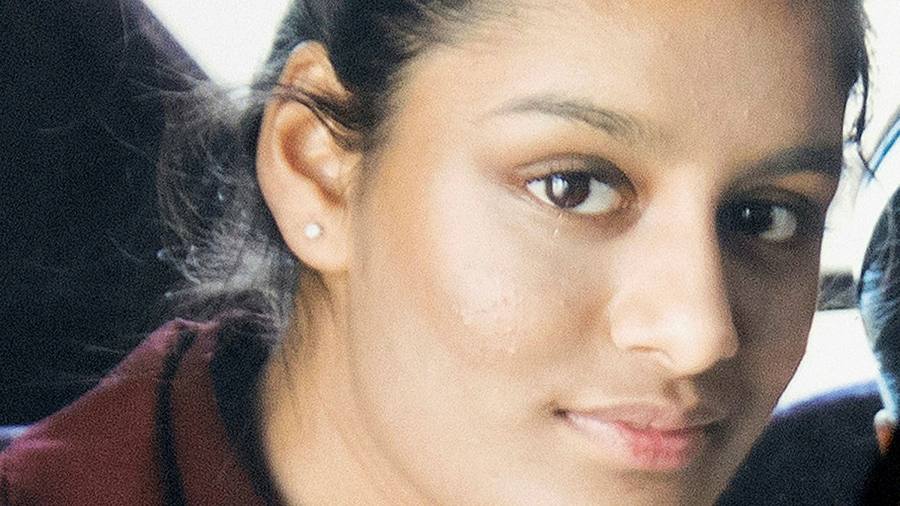[ad_1]
A woman who left the UK to join Isis in Syria on Friday lost her legal battle to return to contest the removal of her citizenship when the Supreme Court ruled against her in three related legal cases.
The ruling overturns a decision by the Court of Appeal in July last year that would have allowed Shamima Begum to return to the UK from the Syrian refugee camp where she is living.
It is a victory for home secretary Priti Patel whose department revoked Begum’s British citizenship and has fought strenuously to prevent the “jihadi bride†returning to the UK, saying she is a national security risk.
Begum, now 21, left her home in east London in 2015 with two school friends for what she called the “good life†in Syria under Isis control. She married a foreign fighter and was found in a Syrian refugee camp in February 2019, when she said she wanted to return to the UK for the sake of her newborn child, who subsequently died.
Sajid Javid, then home secretary, made the unusual decision to deprive Begum of her UK citizenship on February 19, 2019, relying, the court heard, partly on information that he had decided should not be made public on national security and public interest grounds.
In June 2019, relying again partly on information that was not made public, Javid denied Begum the right to enter the UK to pursue an appeal against his decision, which she argued she could not effectively do from Syria. The Court of Appeal had ruled last year that her right to pursue an effective appeal trumped the national security concerns.
Friday’s ruling was to decide whether Begum had the right to “cross-appeal†over how the Special Immigration Appeals Commission had decided an element of her appeal against the decision to deprive her of her citizenship. It was also deciding on an appeal by the home secretary on two related elements of Begum’s successful case last year in the Court of Appeal arguing that she should be allowed to come to the UK to pursue her legal cases.
“The Supreme Court unanimously allows the secretary of state’s appeals and dismisses Ms Begum’s cross-appeal,†Robert Reed, Supreme Court president, told the court.
The appropriate way to deal with the problem of Begum’s difficulty in contesting her deprivation of citizenship while in the camp was to delay the case until she was in a better position, Reed added.
“The appropriate response to the problem in the present case is for the deprivation appeal to be stayed until Ms Begum is in a position to play an effective part in it without the safety of the public being compromised,†he told the court. “That is not a perfect solution, as it is not known how long it may be before that is possible. But there is no perfect solution to a dilemma of the present kind.â€
Begum’s case became a cause célèbre after her family argued that, because she was a minor when she left the UK, she should not be held to the same standards of responsibility as older people who travelled to Syria to fight for Isis.
However, the government argued that her actions posed such a threat that she had surrendered her rights.
Patel said on Friday the decision had reaffirmed the home secretary’s authority to make “vital national security decisionsâ€.
“The government will always take the strongest possible action to protect our national security and our priority remains maintaining the safety and security of our citizens,†Patel said in a statement.
The UK approach to Begum’s case contrasts with the US position that all countries should repatriate their nationals who went to join Isis.Â
There are 10,000 foreigners from 57 countries in the sprawling Al Hol camp, under control of Kurdish forces in northeastern Syria with assistance from a US-led anti-Isis international coalition. But the guards are stretched, and 20 people were murdered last month inside the camp — which houses 65,000 people — as security conditions worsened.
Fionnuala Nà Aoláin, UN special rapporteur, this month criticised the “uptick in nationality stripping†by countries unwilling to take back people with Isis ties.
[ad_2]
Source link





